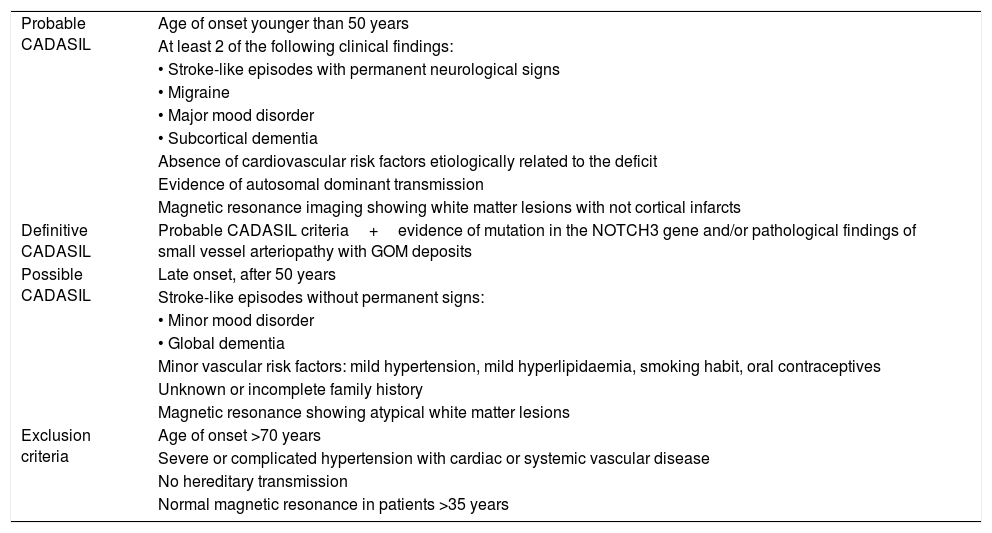CADASIL (cerebral arteriopathy, autosomal dominant, with subcortical infarcts and leukoencephalopathy) disease is an inherited systemic arterial disease that affects the small and medium calibre cerebral vessels. Around 500 families are affected in the world, most of them in Europe. It is characterised by migraine attacks, subcortical dementia, neuropsychiatric disorders, and recurrent ischaemic strokes.
The objective of this article is to describe, for the first time in the literature, the management by general anesthesia of an intracranial neurosurgical procedure in a patient with CADASIL disease. Continuous monitoring of blood pressure is considered essential, as well as the maintenance of normocapnia and normothermia to avoid the development of new cerebrovascular accidents. This disease is relevant due to its anaesthetic implications and the few publications to date.
La enfermedad de CADASIL (arteriopatía cerebral autosómica dominante con infartos subcorticales y leucoencefalopatía) es una angiopatía sistémica hereditaria que afecta fundamentalmente a los vasos cerebrales de pequeño y mediano calibre. Alrededor de 500 familias están afectadas en el mundo, la mayoría de ellas en Europa. Se caracteriza por presentar crisis de migraña, demencia subcortical, trastornos neuropsiquiátricos e ictus isquémicos de repetición.
Nuestro objetivo ha sido describir por primera vez en la literatura el manejo mediante anestesia general de un procedimiento neuroquirúrgico intracraneal en un paciente con la enfermedad de CADASIL. Consideramos esencial la monitorización continua de la presión arterial, así como el mantenimiento de normocapnia y normotermia para evitar el desarrollo de nuevos accidentes cerebrovasculares. Esta enfermedad resulta relevante debido a sus implicaciones anestésicas y las escasas publicaciones hasta la fecha.







